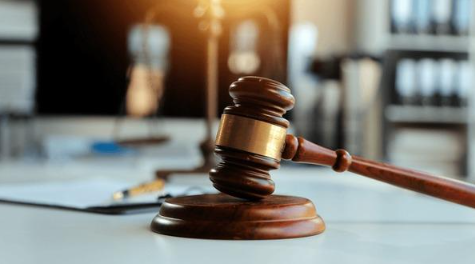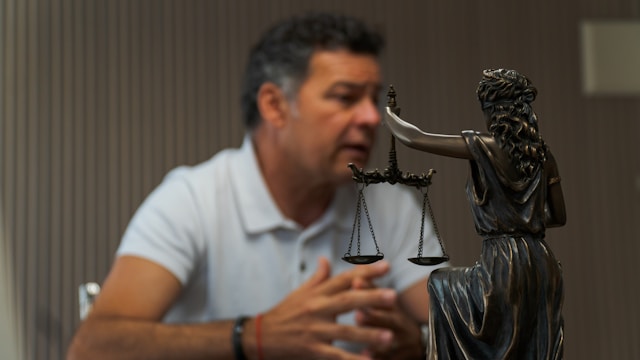When it comes to personal injury lawsuits, legal terminology can be confusing—especially when it comes to the term “disposed.” If you’re involved in a legal claim, you may come across court records that show a case as “disposed,” which might raise questions about what happens next. In legal jargon, disposed meaning typically refers to the resolution or conclusion of a case, regardless of whether it was through settlement, dismissal, or trial judgment. Understanding how a case is disposed of and the implications it has on a personal injury claim is crucial for anyone navigating the legal process.
What Does “Disposed” Mean in a Legal Context?
In simple terms, when a court case is marked as “disposed,” it means the case has come to a legal conclusion. The court has taken final action on the matter. However, the way in which it reaches that conclusion can vary widely.
There are several ways a personal injury case can be disposed of:
- Dismissal: This could be voluntary or involuntary. A plaintiff may drop the case, or the court may dismiss it for lack of evidence, procedural errors, or legal insufficiency.
- Settlement: Most personal injury cases are resolved through negotiated settlements before going to trial.
- Trial Judgment: If the case goes to court, the judge or jury may issue a verdict, awarding damages or ruling in favor of the defendant.
- Default Judgment: If a party fails to appear or respond, the court may issue a judgment in favor of the other side.
How the Disposition Method Can Affect a Personal Injury Claim
The manner in which a case is disposed of can significantly impact the claimant’s rights and potential compensation. Let’s look at the most common methods of disposition and how each can affect a personal injury claim.
- Case Dismissed
If your case is dismissed without prejudice, you may be allowed to refile your claim. However, if it’s dismissed with prejudice, the opportunity to bring the case again is typically lost. Dismissals can happen for various reasons, including failure to meet filing deadlines, missing court appearances, or insufficient evidence.
This type of disposition usually ends the case unfavorably for the plaintiff, and unless there’s an option to appeal or refile, the chance to recover damages may be permanently lost.
- Settlement Agreement
A settlement is the most common resolution in personal injury cases. Both parties agree to a compensation amount, and the case is dismissed or marked as disposed once the agreement is finalized.
Settlements can be advantageous because they avoid the time and risk of a trial. However, once a settlement is reached and the case disposed of, the plaintiff typically waives the right to pursue the claim further—even if future injuries develop.
- Trial and Judgment
If a personal injury case goes to trial, the court will issue a binding judgment. If the plaintiff wins, the court will determine the amount of compensation. If the defendant wins, the plaintiff may receive nothing.
This method of disposition can lead to the highest potential payouts but also involves greater risk. Appeals may be possible, but the initial disposition can affect the timeline and strategy moving forward.
- Default Judgment
A default judgment occurs when one party fails to respond or appear in court. For example, if the defendant ignores the lawsuit, the court may automatically rule in favor of the plaintiff.
While this may sound like an easy win, collecting compensation can still be a challenge if the defendant lacks insurance or financial resources.
The Importance of Legal Representation
No matter how your case is disposed of, having a skilled personal injury attorney is essential. A lawyer can help navigate court procedures, negotiate settlements, and ensure deadlines are met—reducing the chances of a case being dismissed unfairly.
An attorney can also explain the legal implications of different types of dispositions. For instance, accepting a lowball settlement may lead to regret later, but missing a court appearance can be even worse if it leads to a permanent dismissal.
Can You Reopen a Disposed Case?
In most cases, once a personal injury claim is disposed of—especially through a settlement or dismissal with prejudice—it cannot be reopened. However, there are exceptions. If fraud, clerical errors, or new evidence is involved, a motion may be filed to reopen the case. But such scenarios are rare and often difficult to prove.
Conclusion
Understanding the meaning and consequences of a case being disposed of is crucial for anyone involved in a personal injury lawsuit. The disposed meaning may sound simple, but its impact on your rights and recovery can be significant. Whether your case ends in dismissal, settlement, or trial, the outcome shapes your financial future and ability to seek justice. For that reason, it’s always wise to work with an experienced attorney who can guide you through the legal maze and help you achieve the best possible outcome.
Articles published under the Editorial Desk byline may include material from various sources and are reviewed internally to ensure clarity, factual consistency, and compliance with the site’s editorial standards. Content is published for general informational purposes only and follows applicable content and publishing guidelines




